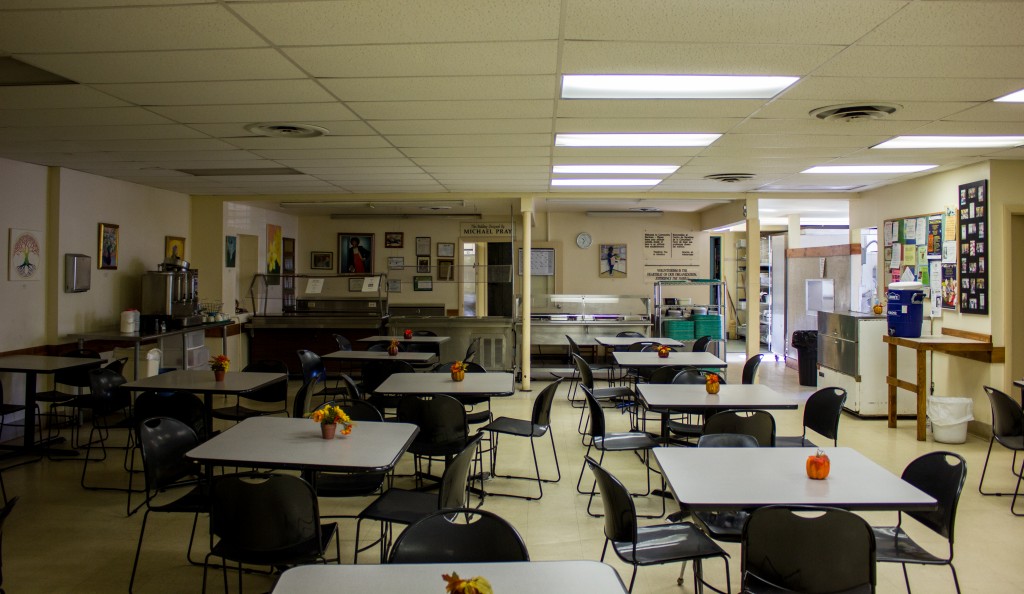The New London Community Meal Center (NLCMC) provides people in need with prepared meals with no questions asked, but due to a serious funding shortage, its 30 year operation may cease.
NLCMC, originally called the Health and Welfare Community upon its founding in 1985 by Laurie Bellinger with The Mount Olive Seventh Day Adventist Church of New London, offers lunch five days per week, dinner six days per week and operates with two paid employees and 350 volunteers. Only the kitchen manager and security officer receive pay; everyone else, including the 15-member Board of Directors, helps run the Center for free.
As a community-supported organization, the Center relies primarily on private donations and grant funding in order to maintain its operation. According to John Kamishlian, President of the Board of Directors, running NLCMC requires $18,000 per month for regular operations and $3,000 per month for power. In addition to these expenses, the Center must pay its building taxes and maintenance.
“We ended last fiscal year about $22,000 in the hole,” Kamishlian said. “One repair to this building could’ve knocked us out.”
Early in October, the NLCMC announced that with only $26,000 left in the budget, the center might not survive the 2015 fiscal year. Local support poured in through radio broadcast and food drive efforts, but the Center still requires more monetary assistance.
“We won’t turn our nose up at anything,” said Kamishlian, though he noted that NLCMC prefers non-perishable food donations due to lack of refrigerator space. Recently, he added, the center spent $20,000 replacing refrigerator compressors.
The Center’s current trajectory appears unsustainable. While NLCMC’s operational costs have maintained or increased, its donations have declined. Kamishlian said that most donors have aged, moved away or can no longer afford to pledge donations. The same dynamic faces their volunteer force.
“Our groups are nice, but they’re getting older,” Kamishlian commented. “We used to have some kids from [Connecticut College]; I don’t know how frequently.”
The Center’s shortages in monetary and volunteer sustainability share a potential solution: youth participation.
“We’ve got to get a grant writer,” said Kamishlian, noting that the Board lacks that particular area of expertise.
“We’ve got several bankers, employees of Gemma E. Moran United Way/Labor Food Center [in New London]…retired maintenance people and contractors,” Kamishlian added, but he explained that while diverse and effective, the group is not trained in grant writing.
According to Kamishlian, finding a grant writer would warrant the creation of a new payroll position. The investment in a third paid employee would ideally pay off quickly, as NLCMC receives the funding that it needs.
“We had a donor give $2,000 a month for the next year,” Kamishlian said, explaining that long-term, reliable pledges such as this are an extra helpful type of contribution. “Most big corporations donate where their name will be on a pamphlet,” Kamishlian added. He elaborated that the Center seeks more sustainable funding than limelight-motivated donations.
As a 501(c) non-profit organization, NLCMC qualifies for federal grant funding, but these grants are competitive, and their acquisition requires the right approach. Kamishlian clarified that many grants cater specifically to “predominantly homeless and transitional housing residents,” but because of the Center’s open door policy, they cannot file under this specification. While the Center does have a sustained relationship with the Homeless Hospitality Center, it serves indiscriminately and therefore does not qualify for specific types of funding.
Interested students can learn more, volunteer and/or donate at nlcommunitymealcenter.org.










